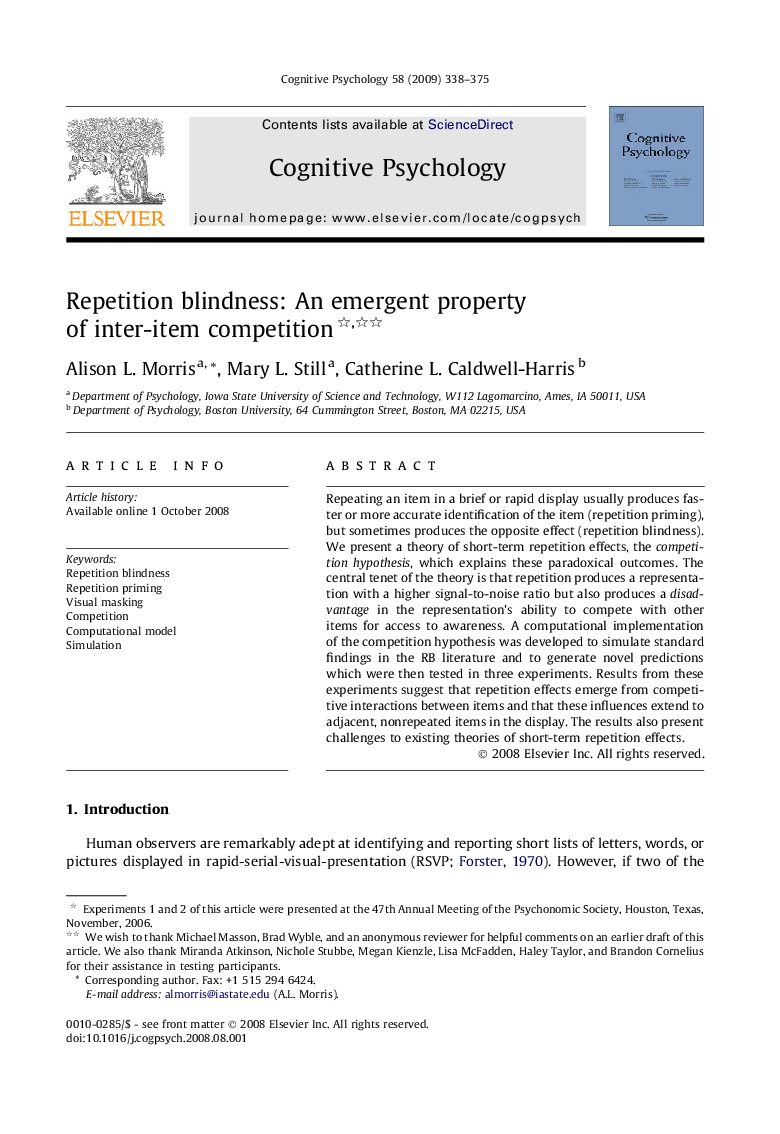| Article ID | Journal | Published Year | Pages | File Type |
|---|---|---|---|---|
| 916992 | Cognitive Psychology | 2009 | 38 Pages |
Repeating an item in a brief or rapid display usually produces faster or more accurate identification of the item (repetition priming), but sometimes produces the opposite effect (repetition blindness). We present a theory of short-term repetition effects, the competition hypothesis, which explains these paradoxical outcomes. The central tenet of the theory is that repetition produces a representation with a higher signal-to-noise ratio but also produces a disadvantage in the representation’s ability to compete with other items for access to awareness. A computational implementation of the competition hypothesis was developed to simulate standard findings in the RB literature and to generate novel predictions which were then tested in three experiments. Results from these experiments suggest that repetition effects emerge from competitive interactions between items and that these influences extend to adjacent, nonrepeated items in the display. The results also present challenges to existing theories of short-term repetition effects.
